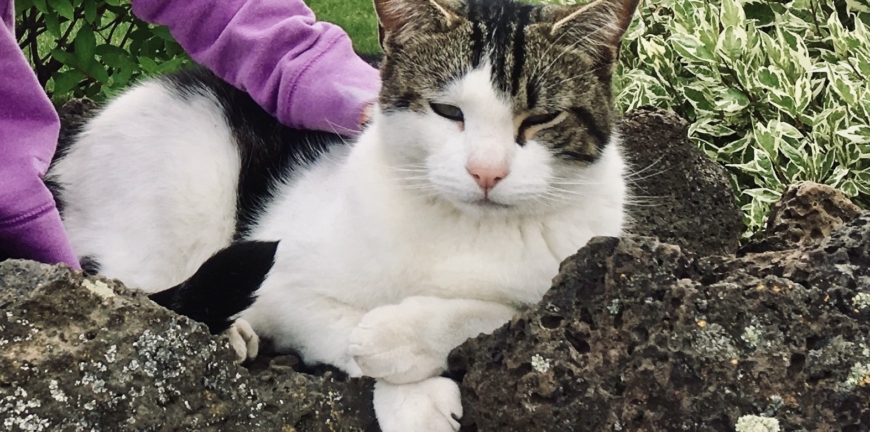December 3, 2021

Vomiting & Diarrhea….What to do?!
Some advice from your veterinary clinic
Gastrointestinal upset (vomiting, diarrhea, lack of appetite) is one of the most common conditions seen at the veterinary clinic and can be distressing (and sleep depriving) for pet owners. Sometimes GI upset is just a short bout of diarrhea, while other times it becomes a more severe illness such as pancreatitis, HGE (hemorrhagic gastroenteritis), or a GI foreign body. In general, there are a few preventative measures to take to hopefully reduce episodes of vomiting or diarrhea in your pet.
The first is to stick to a consistent diet, which includes treats and supplements. Frequent diet changes and introducing new treats can lead to diarrhea or sometimes even cause pancreatitis. When switching to a new food, mix the new food with your current food and transition over 5-7 days. Human food can be a big contributor to causing GI disease. Giving your pet a little food left over on the plate can potentially lead to serious complications. So, refraining from feeding your pet table food can also be helpful. If you are going to feed a home-cooked meal, please discuss proper nutrition at the veterinary clinic prior to doing so to ensure your pets are receiving all the proper vitamins and minerals they require.
When giving your pet a new toy or bone, make sure to supervise them first so you know they are playing safely. It is not good for them to ingest large pieces of bone or any material from the toys. If they are eating these things, there is a chance for them to get stuck or cause some irritation on the way through. Puppies and kittens are notorious for chewing on everything & may accidentally (or purposefully!) ingest something that can be harmful. Make sure they are in a safe environment and provide proper toys for chewing and teething.
Of course, we can’t always control what our pets put in their stomachs! So knowing what to watch for is also very helpful. Symptoms such as diarrhea, vomiting after eating or drinking and a lack of appetite are all reasons to call the vet. These can cause dehydration or electrolyte derangements that can be very serious for your pet. Usually, if treated early on most pets can be treated as an outpatient and go home within a few hours. However, if symptoms are severe or have been prolonged, then pets often need to be hospitalized. Once your pet is examined at the veterinary clinic, diagnostics can be recommended (including blood work, fecal test, urinalysis and x-rays) to help determine the cause and severity of disease and then proper treatment recommendations can be made.
If you ever have concerns whether a new toy, food, or activity is safe for your pet, don’t hesitate to reach out to Pawtown Veterinary Care and we would love to assist you!